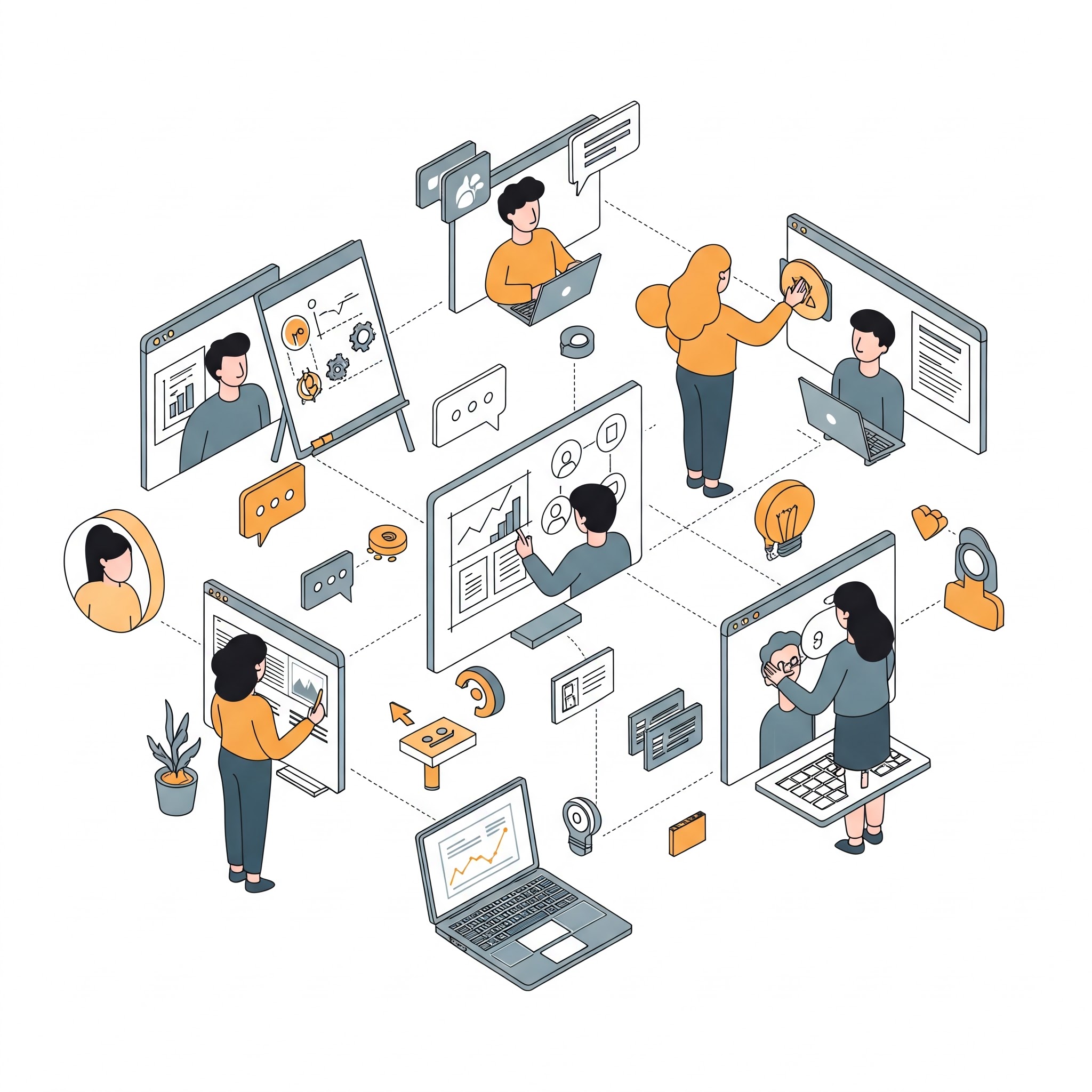Igniting Powerful INSIGHTS
The Challenge
Information Overload: Managing the vast number of research papers published weekly. Knowledge Silos: Difficulty in identifying cross-disciplinary research connections. Inconsistent Data Extraction: Manual methods often led to omissions and inconsistencies. Time-Intensive Literature Reviews: Comprehensive reviews took weeks to complete. Limited Hypothesis Generation: Researchers lacked the time to explore novel ideas beyond their immediate focus.
Complexity and Innovation
Multi-Agent System Architecture: Developed using Crew AI to ensure efficient collaboration among agents. Semantic Search Implementation: Utilized advanced NLP techniques for accurate literature retrieval. Hypothesis Generation Model: Used AI-driven insights to identify research gaps. Real-Time Research Summarization: Automated synthesis of research findings. Feedback Loop Mechanism: Integrated continuous learning for improved performance.
The Process
Knowledge Base Setup: Established domain-specific knowledge repositories. Integrated scientific databases such as PubMed and Semantic Scholar. Agent Specialization: Developed role-specific AI agents (search, extraction, analysis, hypothesis, report generation, and management). Workflow Optimization: Implemented Crew AI for seamless coordination among agents. Integration with Research Tools: Connected with external APIs for real-time literature retrieval. User Interaction Interface: Developed a user-friendly dashboard for researchers to interact with the system. Feedback & Continuous Improvement: Implemented feedback loops to enhance data accuracy and workflow efficiency.
Client Collaboration
Regular Consultation: Researchers provided input to fine-tune AI models. Pilot Testing: Conducted beta testing with university research groups. Customization: System was tailored to specific scientific domains based on client feedback
Enhancing Research System with Intelligent Automation
- Streamline the literature review process.
- Reduce the time spent on research paper analysis.
- Improve data extraction accuracy from scientific documents.
- Generate novel hypotheses for research exploration.
- Enable researchers to focus more on hypothesis testing and experimentation.
"AI-powered multi-agent research systems revolutionize scientific literature analysis by automating reviews and uncovering critical insights, enabling researchers to stay ahead of emerging trends."
Scientific Literature Analysis with Smart Automation
- Literature Search Agent: Retrieves relevant papers using semantic search.
- Data Extraction Agent: Extracts structured data, methodologies, and conclusions.
- Analysis Agent: Performs meta-analysis and identifies trends.
- Hypothesis Generation Agent: Proposes novel research directions.
- Report Generation Agent: Synthesizes findings into structured reports and visualizations.
- Crew Manager Agent: Orchestrates workflow and ensures system efficiency.

Revolutionizing Scientific Literature Analysis with AI
- Reduction in time spent on literature review tasks.
- Increase in the number of relevant papers analyzed per research project.
- More novel research hypotheses generated and explored.
- Improvement in identifying cross-disciplinary research connections.
- Faster comprehensive research summaries compared to manual methods.
- Researcher Satisfaction with the system's ability to support their work.

